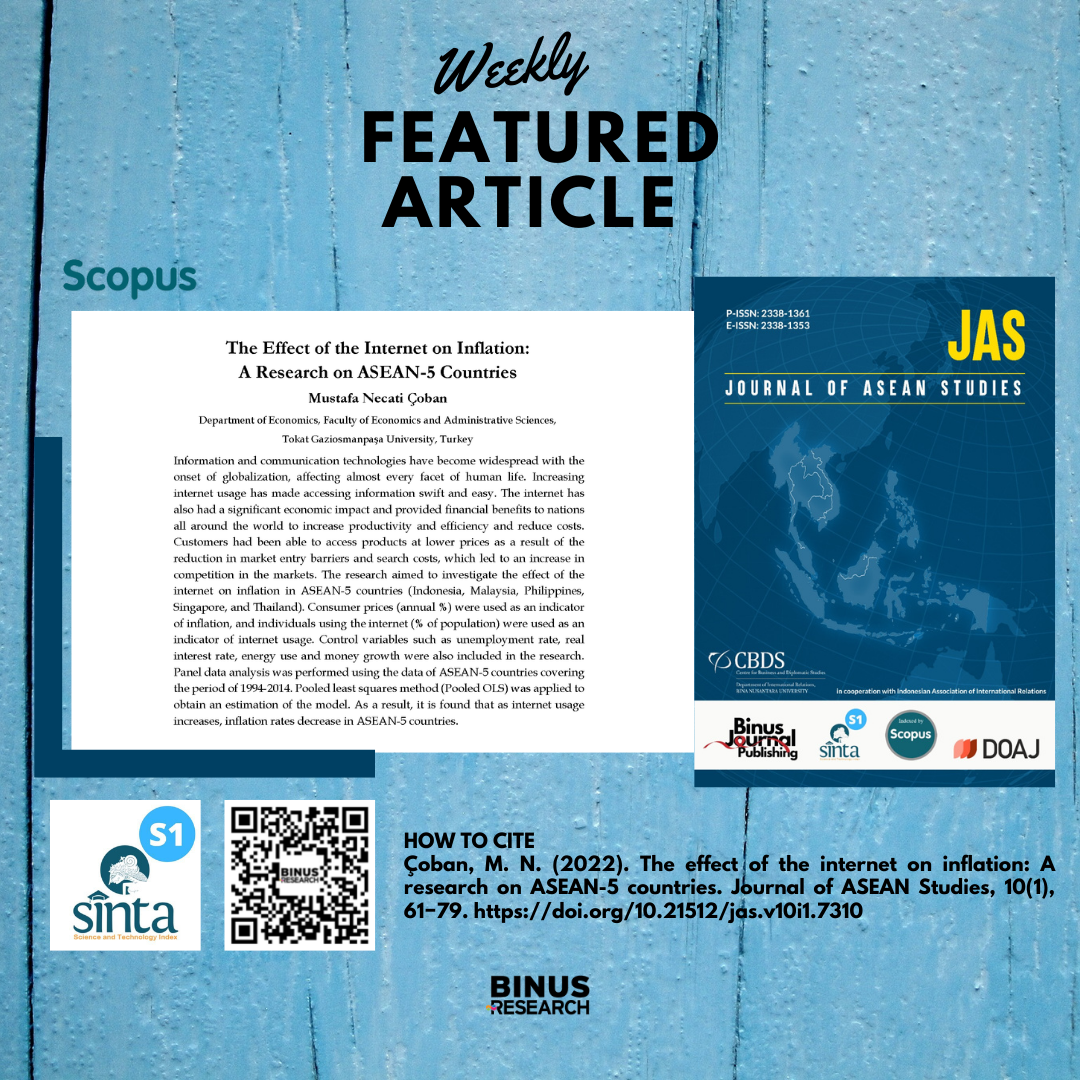Weekly Featured Article

The Effect of the Internet on Inflation: A Research on ASEAN-5 Countries
Mustafa Necati Çoban
Department of Economics, Faculty of Economics and Administrative Sciences, Tokat Gaziosmanpaşa University, Turkey
Information and communication technologies have become widespread with the onset of globalization, affecting almost every facet of human life. Increasing internet usage has made accessing information swift and easy. The internet has also had a significant economic impact and provided financial benefits to nations all around the world to increase productivity and efficiency and reduce costs. Customers had been able to access products at lower prices as a result of the reduction in market entry barriers and search costs, which led to an increase in competition in the markets. The research aimed to investigate the effect of the internet on inflation in ASEAN-5 countries (Indonesia, Malaysia, Philippines, Singapore, and Thailand). Consumer prices (annual %) were used as an indicator of inflation, and individuals using the internet (% of population) were used as an indicator of internet usage. Control variables such as unemployment rate, real interest rate, energy use and money growth were also included in the research. Panel data analysis was performed using the data of ASEAN-5 countries covering the period of 1994-2014. Pooled least squares method (Pooled OLS) was applied to obtain an estimation of the model. As a result, it is found that as internet usage increases, inflation rates decrease in ASEAN-5 countries.
Scan the QR Code to read the article on website
https:/doi.org/10.21512/jas.v10i1.7310
____________________________________________
Public Engagement and Outreach
Research and Technology Transfer
https://linktr.ee/binusresearch
#journalofaseanstudies #scopus #BINUSUNIVERSITY #BINUSIAN #BINUSRESEARCH #fosteringandempowering


